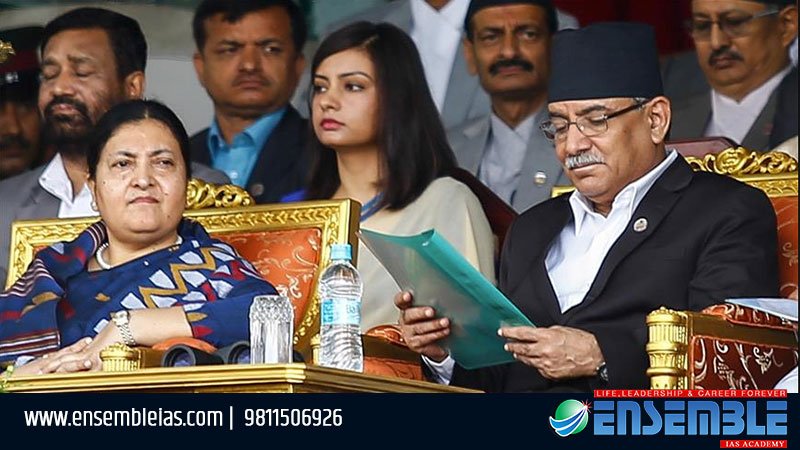Court sets aside decision to dissolve Parliament, but political reconciliation within ruling party seems unlikely.
Kathmandu impasse: The order of the Supreme Court of Nepal to reinstate the House of Representatives is a step towards resolving the constitutional crisis triggered by President Bidhya Devi Bhandari’s decision two months ago to dissolve the Lower House of Parliament. President Bhandari had gone by the advice of Prime Minister KP Sharma Oli, who, instead of accommodating his rivals in the party and government, preferred fresh elections, even at the cost of a split in the Nepal Communist Party. The Court has ordered that the House be reconvened within 13 days. It is reasonable to expect that the NCP faction opposed to Oli will move a no-confidence motion against the government.
To buy our online courses Click Here
The SC judgment has rightly pointed out that it was asked to adjudicate on a matter which is political in nature. The court has sought to remind the political executive that its decisions need to respect the processes and procedures outlined in the Constitution. Though its political fallout will take time to be revealed, it is clear that a resolution to the divisions within the NCP has become even more difficult. Much of the disagreements within the party can be traced back to the differences that existed between the two communist parties, the Oli-led Communist Party of Nepal-UML and the Communist Party of Nepal-Maoist Centre of Pushpa Kamal Dahal (Prachanda), before their merger in May 2018, a year after an alliance of the two parties won a majority in Parliament. The euphoria of a massive election win had led the two parties to hastily work out a power-sharing agreement with Oli and Prachanda appointed as co-chairmen. History attests that it is rare for communist groups factions that have parted ways on ideological differences to set them aside amicably. Last month, the Prachanda faction, which has been mobilising protests against the Parliament dissolution, expelled Oli from the NCP’s primary membership. The alleged behind-the-doors attempts of the CPC (Communist Party of China) to mediate a truce between the two factions and avoid a vertical split in the party have also not succeeded so far.
Read Also: China Trade Dilemma
With divisions running deep and leaders nursing hurt and mistrust, the restoration of Parliament may not lead to a return of normalcy. The consensus that favoured a unified communist party to govern Nepal has for all purposes dissipated. Fresh elections may lead to a realignment of political forces and a stable government.
Kathmandu impasse




